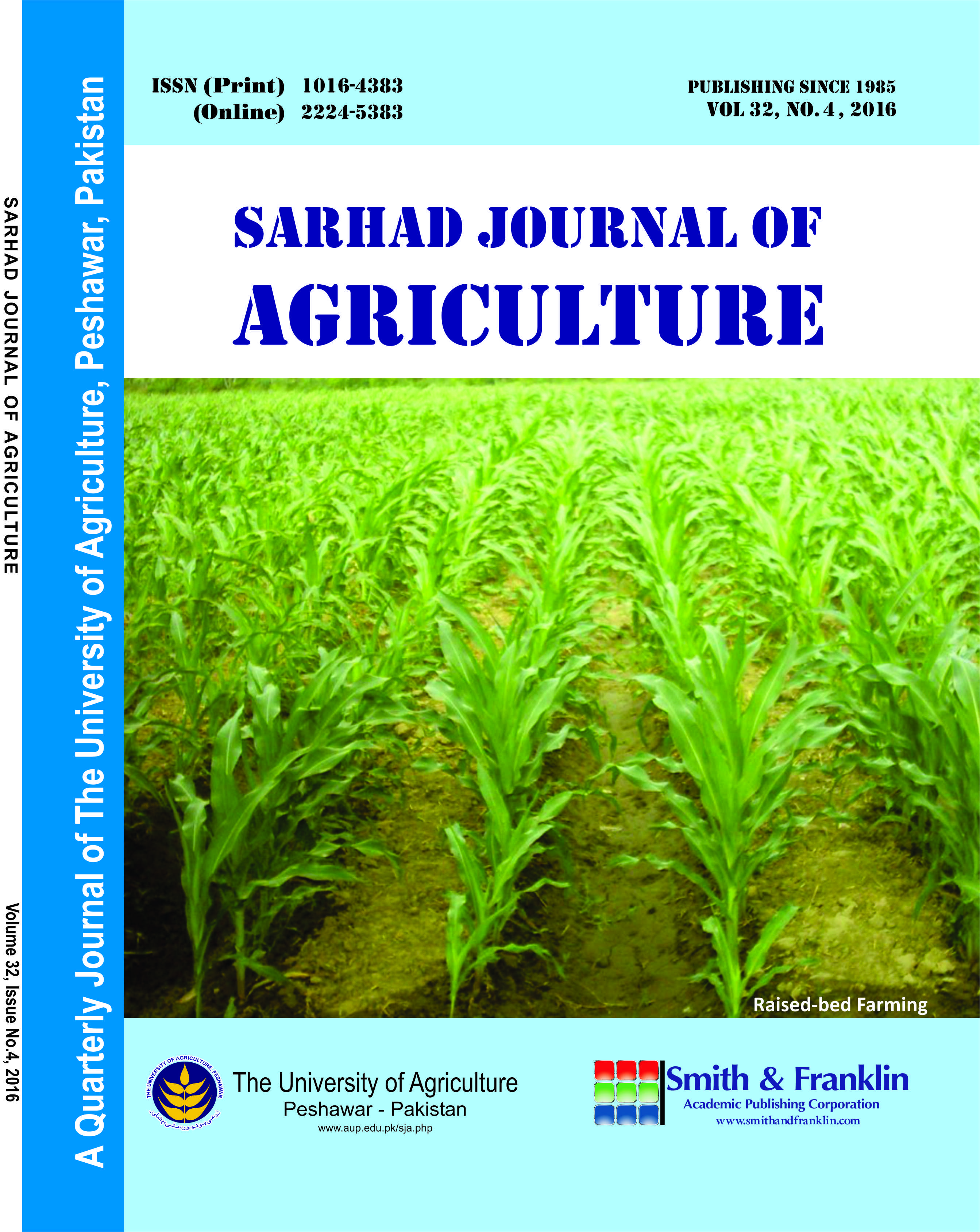Seed Conditioning Effects on Germination Performance, Seedling Vigor and Flower Production of Zinnia elegans
Shaiza Rasool1, Iftikhar Ahmad1*, Khurram Ziaf1, Irfan Afzal2, Muhammad A.S. Khan1, Muhammad Aashir Sajjad1 and Muhammad Zain Ali1
ABSTRACT
Various seed conditioning techniques were assessed for uniform germination, seedling vigor, and flower production in zinnia (Zinnia elegans Jacq.). Two initial laboratory experiments evaluated the timing and frequency of seed magnetic stimulation to select the most promising treatments for field production testing and flowering. In the first experiment, a 3% moringa leaf extract (MLE) showed the earliest (2.8 d) and the highest germination rate (90%) with an average root length of 4.2 cm. Hydro-priming resulted in the largest seedling fresh weight (0.8 g), seedling shoot length (5.8 cm), and seedling vigor index (980). The seedling vigor index was determined by multiplying the percent germination with the seedling length (cm). In the second experiment, seeds treated at 25 mT for 5 min. showed the highest (65%) and earliest (3.2 d) germination (T50) although not significantly different from treatments with 50 mT for 5 or 10 min. or 75 mT for 5 min. In field trials, seeds primed with MLE alone or in combination with magnetically treated water (MTW) produced the tallest plants (104 cm) with longer internodes and the largest canopy diameter (42.4 cm). Using MLE along with MTW produced greater plant fresh weight (137 g), more flowers (27.5), and larger flower diameter (9.7 cm) similar to the results of using MTW alone. In summary, seeds primed with MLE in combination with untreated water or MTW resulted in improved plant growth and yield characteristics and may be recommended to commercial growers of zinnia or other annual flowers.
To share on other social networks, click on any share button. What are these?







